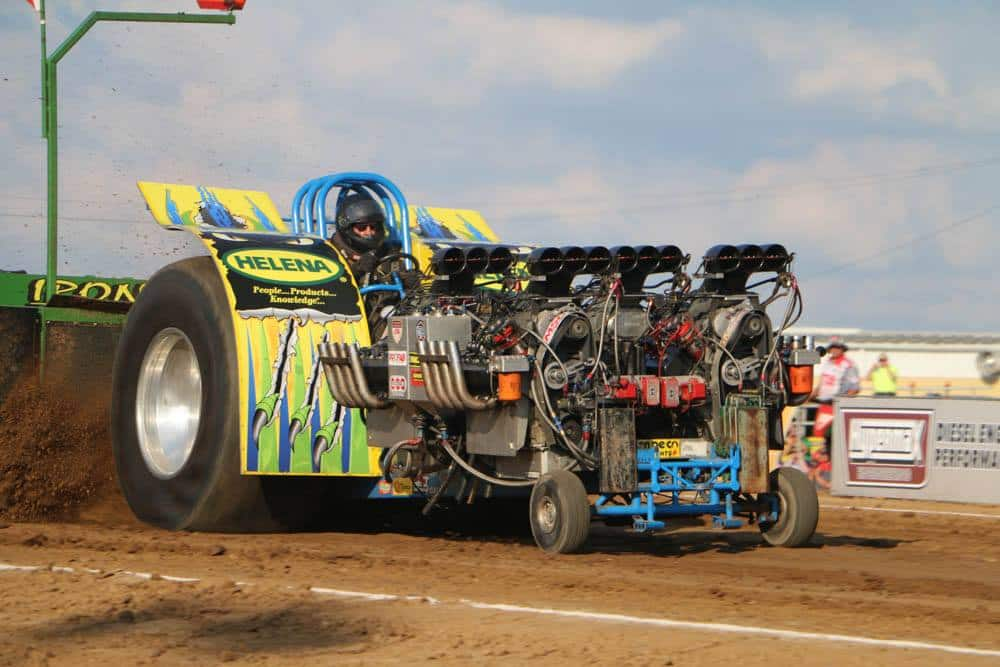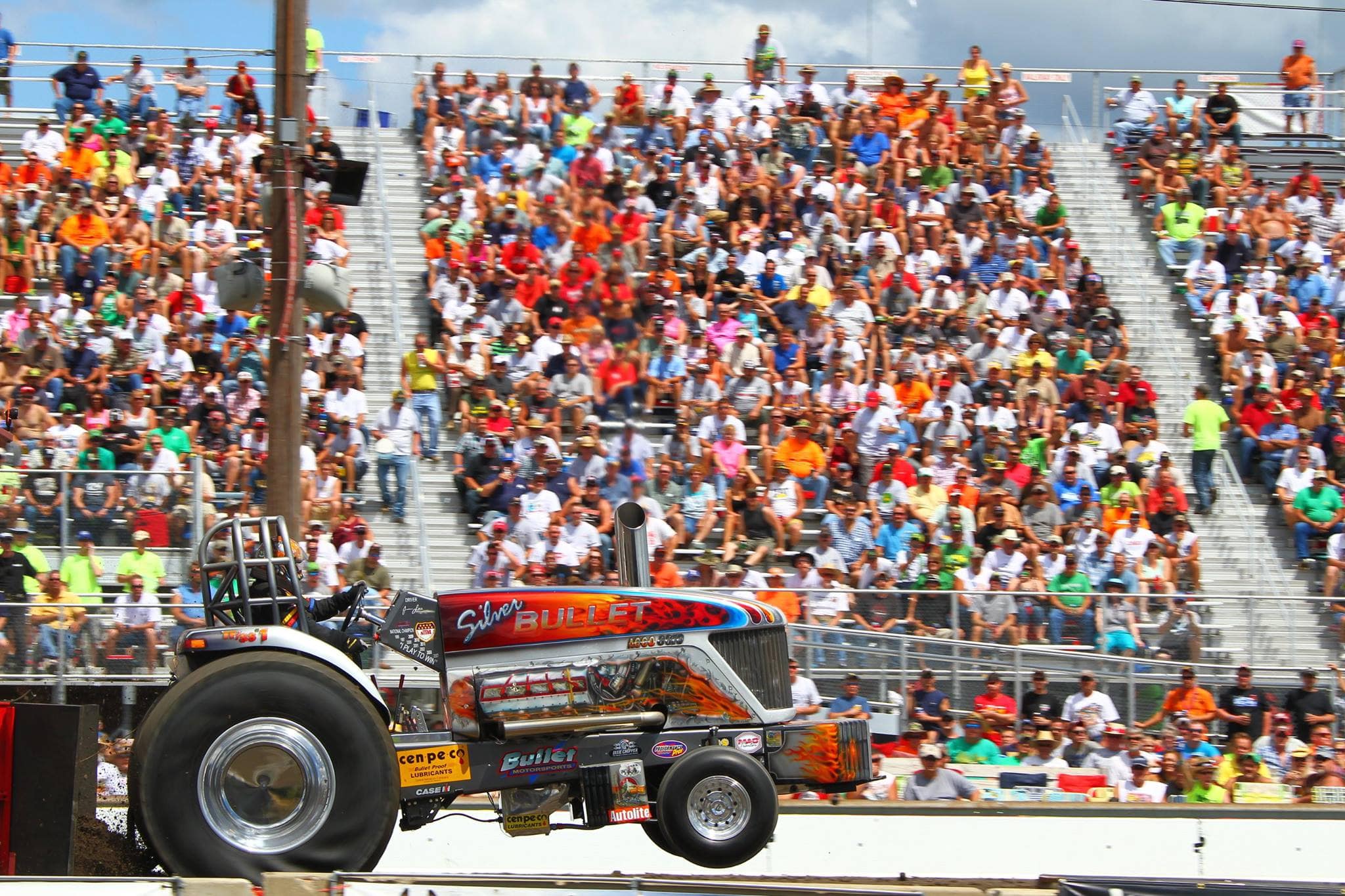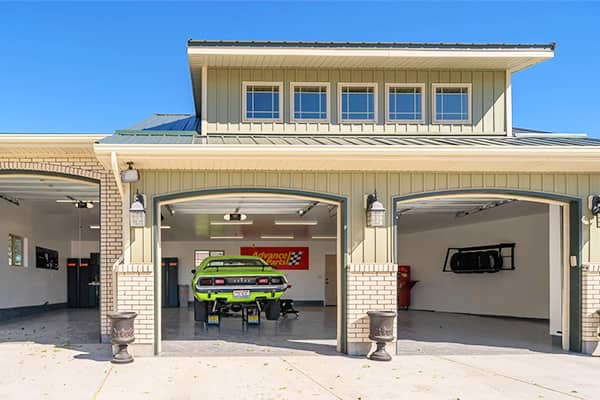We think it might be time for you to get to know Miles Krieger. He's a guy we'd all like to be friends with, and you might want to kick back with him too, after hearing about his dedication to tractor pulls. Source: Miles Beyond 300
Source: Miles Beyond 300
Miles Krieger has tractor pulling in his blood. He grew up touring the circuit with his dad, Butch, a tractor-pull event announcer who still actively announces 40 shows a season. Miles is also an event announcer and often hosts event pre-shows. Krieger’s unique perspective, often shared on his website MilesBeyond300, provides tractor pull fans with a better understanding of the sport’s unique past, present, and future.
But don't take our word for it. Here's what Krieger has to say about the exciting sport. Source: Miles Beyond 300
Source: Miles Beyond 300
Q: How did tractor pulling get started?
Pulling can be traced back to the truest form of horsepower. Farmers would get together and compete for bragging rights by hooking their teams of horses up to a flat board covered in rocks. Those same farmers later got together to show off their strength with a farm tractor. In the '60s, organizations and rules began to take shape. The sport began to grow in popularity with events popping up all over the country.
By the '80s, the sport went mainstream. Television networks were picking up coverage of the touring series. Corporate sponsorships began to come to the series and also to the competitors. Today farmers from across the country are representing brands and focusing on getting to the next event as they tour the country both for indoor and outdoor events. Source: Miles Beyond 300
Source: Miles Beyond 300
Q: What goes into creating a winning tractor today?
Over the last decade, the sport has truly evolved in the pursuit of horsepower. The engineering and research/development going into the sport is unbelievable. Regardless of what level a competitor is pulling, the demand to be at the front of the class encourages everyone to go the extra mile in pursuit of power. The technology is increasing and adaption of the rules has allowed competitors to continue to push the limits.
Years of research goes into it. Pullers tweak and push the envelope on configuration in order to find a competitive advantage within the rules.
Horsepower is key, but it isn’t the only factor. A winning pull begins with preparation and maintenance. Competitors work prior to the pull to ensure their equipment is in top notch form. The pursuit of weight is also a very big consideration when developing a chassis. Some competitors are doing their own chassis work, while others rely on a chassis builder known for success in the respective class. Years of research goes into it. Pullers tweak and push the envelope on configuration in order to find a competitive advantage within the rules. Source: Miles Beyond 300
Source: Miles Beyond 300
Q: What are the qualities of an elite tractor driver?
The best equipment in the sport doesn’t always win. Competitors who understand their equipment and drive for perfection will win more times than not. Reading a track, understanding the conditions at the event, and driving the vehicle to match the specific setup and conditions are just a few of the attributes a driver must have. Driving the vehicle to the setup is a lot easier said than done. A puller gets one chance to hit it on the head.
Q: Which weight class is the most entertaining to watch?
Wow, this is a very difficult question to answer! As an announcer, I love the Mini Modified class because of the excitement they bring to the show and the Big Modified class for the engineering that goes into getting four Hemis to sing in harmony down the track. The Pro Stock class is also recognized nationwide. If I were going to name one representative class to watch though, I would pick the Pro Stock class. The tractors are relatable for fans of the John Deere, International, Case, and Massey Ferguson brands. Source: Miles Beyond 300
Source: Miles Beyond 300
Q: What makes tractor pulling different from other motorsports?
One of the most unique aspects of the sport of pulling is the idea of an open pit area. Fans can make their way directly into the pit area before or after the show. The superstars of the sport of pulling are accessible to the oldest and youngest fans in the crowd. Pullers will sign an autograph, put a young fan in the seat of their vehicle, and interact with the fan base until the early hours of the morning. Pulling is fan friendly and built around the idea of giving the fans a first-class experience for an affordable price.
Q: What do you see next for tractor pulling?
I think the sport has a tremendous future. There are a lot of brilliant people working in this sport. We are welcoming our third and fourth generation pullers to the sport now. The professionalism and knowledge possessed by pullers is unbelievable. Competitors are building names for themselves and planting roots for the long term in representing some great brands. We need other organizations to see the value of the sport. I’m confident the Return on Investment will be there in the long term. There are hidden gem tractor pulls all over the country.
Don’t miss the action!
These national circuit events draw the largest competitor entries and crowds. Be sure to check out your local-level tractor pulls too.
Midwest Winternationals -- Gifford, Illinois (January)
National Farm Machinery Show -- Louisville, Kentucky (February)
Wisconsin Dairyland Nationals -- Tomah, Wisconsin (June)
Thunder in the Valley -- Rock Valley, Iowa (July)
Hillsboro Charity Pull -- Hillsboro, Wisconsin (August)
National Tractor Pulling Championships -- Bowling Green, Ohio (August)
Lucas Oil Pro Pulling Nationals – Wheatland, Missouri (September)
Enderle Pull Off -- Urbana, Ohio (September)







